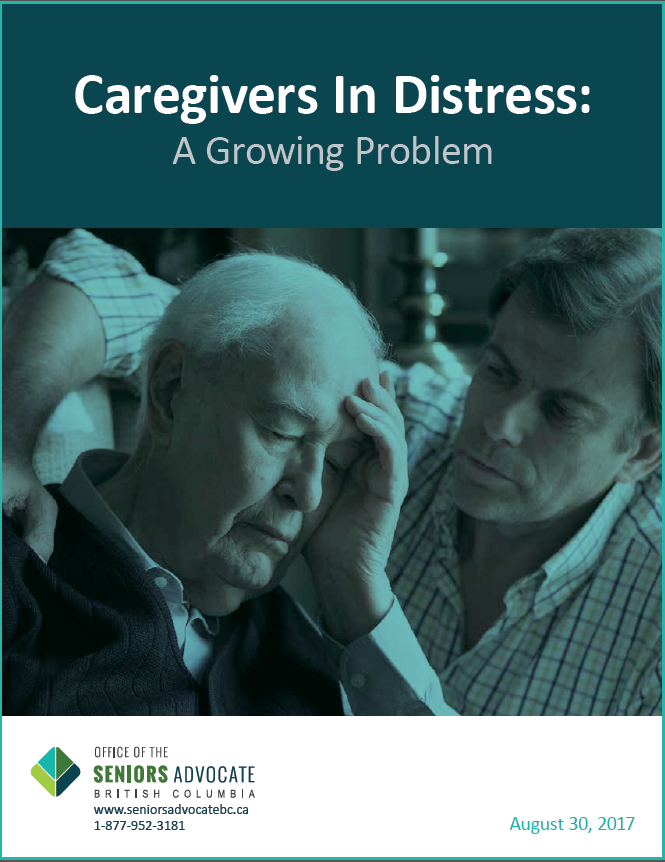The Office of the Seniors Advocate (OSA) released their most recent report this week, Caregivers in Distress: A Growing Problem. Ultimately, the report highlighted that supports and services are not keeping pace with the growing needs of seniors, and that distress rates are rising for B.C. caregivers.
The report focuses on individuals who are caring for people receiving publicly subsidized home support in B.C. The report used province-wide data to examine the experience of caregivers, using InterRAI’s Residential Assessment Instrument – Home Care (RAI-HC) tool, as well as data that tracks key support services such as Adult Day Programs.
Of the over 26,000 caregivers captured in this data-set, 91 per cent were family members, 58 per cent were adult children and 21 per cent were spouses. 44 percent of caregivers lived with the person they were caring for. It should be noted that four per cent of seniors didn’t have a primary caregiver.
The report, which is an update on a report published by the OSA in 2015, shows that 31 per cent of unpaid caregivers are in distress, meaning that they are experiencing symptoms such as anger, depression or feelings of not being able to continue with their caregiving duties. This indicates a seven per cent increase over the 2015 report.
“With over one million unpaid caregivers in the province, these findings illustrate what many of us have been noticing for a long time, particularly for the “sandwich generation” – being an unpaid caregiver is difficult and bolstering the continuum of care is an increasingly urgent need,” says BCCPA CEO Daniel Fontaine.

The OSA report indicates that the seniors accessing home support are more medically complex than ever before, and that complexity has increased between 2013/14 and 2015/16. Perhaps a reflection of increasing acuity, 20% of home support clients feel they would be better off living somewhere other than at home, while 29% of their caregivers feel it would be of benefit.
The report outlines several key options for supporting seniors in community, such as:
- adult day program access;
- increased home support;
- improved access to the CISL program;
- reorganizing respite beds; and
- empowering caregivers.
While increasing access to home support, for example, would likely enable older adults to remain supported in community for longer, it is also important to consider options which appreciate that assisted living and residential care will be necessary – and often preferred – for many seniors as the health and cognitive challenges they are experiencing progress.
Earlier this year, the BCCPA launched the #CareCanBeThere campaign to bring attention to the issues facing B.C. seniors and the people who support them. The campaign brought attention to many of the issues highlighted in the most recent Seniors Advocate report including increased home support and greater investment in the continuing care sector.
In BCCPA’s “Strengthening Seniors Care: A Made-in-BC Roadmap” paper that guided the #CareCanBeThere advocacy, BCCPA again called for a one per cent shift of funds from the acute care budget to the home and community care budget, the creation of a new Seniors Quality of Life Fund which could be used in part, to increase access to programs such as adult day programs. BCCPA also advocated for $28M per year, over the next five years to support the introduction and/or expansion of the Care Hub concept throughout B.C., where the continuing care home could be a centre for the delivery of a wide range of seniors’ services including day and night programs.
“Like much of the OSA’s work, this caregiver report reinforces the fact that B.C.’s seniors need assurance they will receive the right level of care, at the right time, and in the right place,” adds Fontaine.




